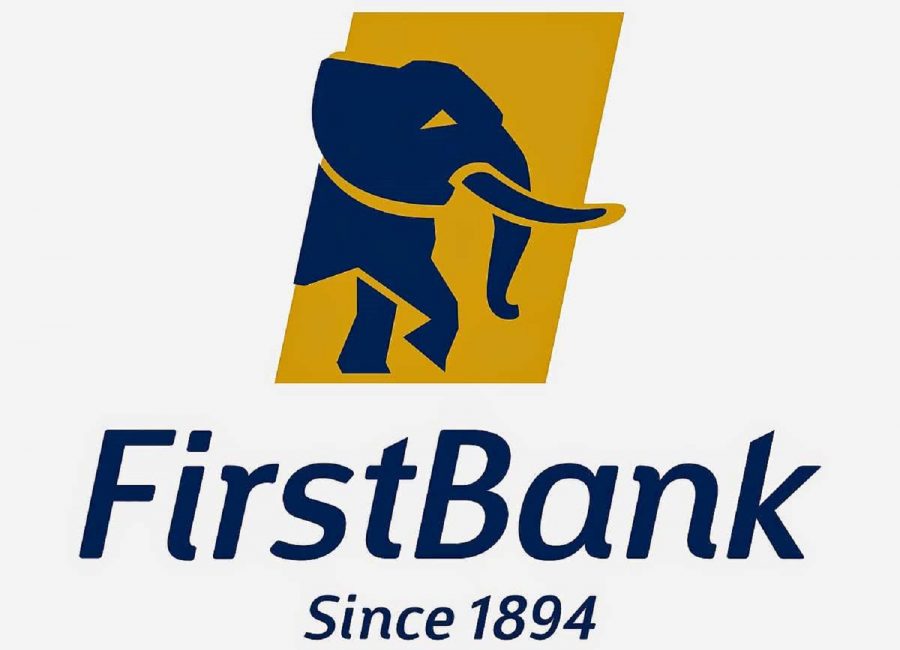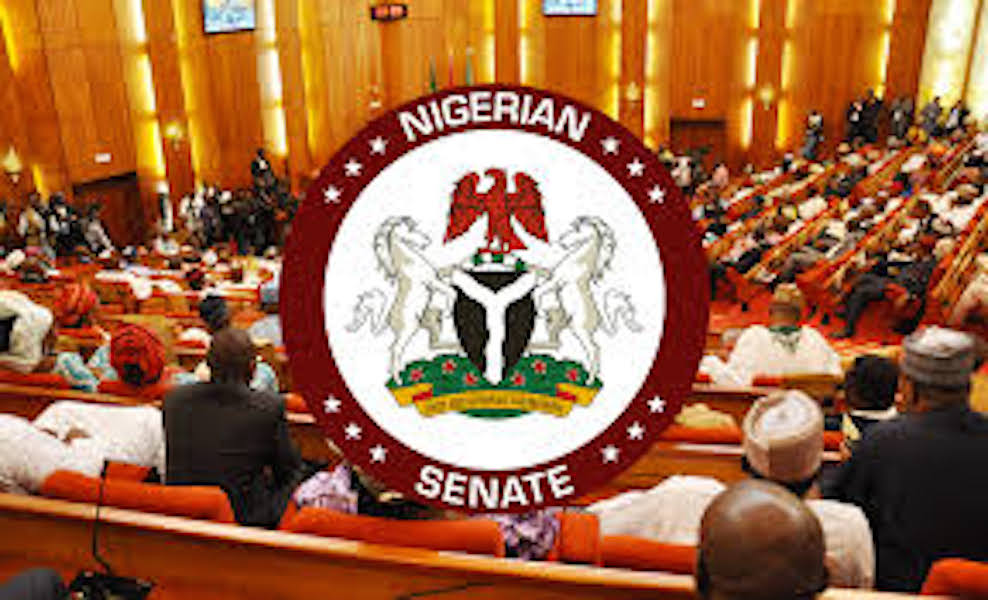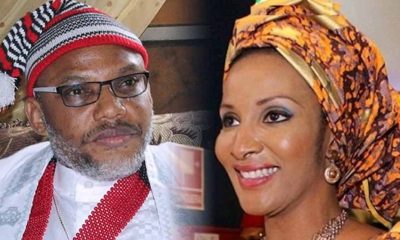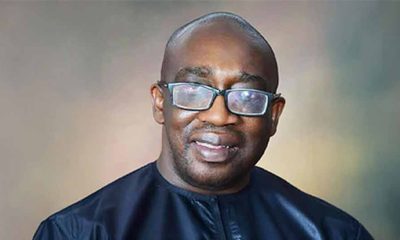News
First Bank’s bad loans hit N13.2bn in three months

First Bank of Nigeria’s provisions for ‘bad loans’ impairments increased by 35.7 per cent to N13.2 billion in the first quarter of this year, a new report by the bank has revealed.
The impairment charges technically imply losses which usually have top-down negative effect on the organisation’s profit.
The provisions for non-performing loans (bad loans) in the first quarter depressed the group’s net bottom-line by 39.3 per cent or N10.1 billion, the report also showed.
These were part of the highlights of the latest operational reports of FBN Holdings Plc, the holding company for First Bank of Nigeria and its former subsidiaries.
The release of the scheduled three-month report for the quarter ended March 31, 2021, came at the time the Central Bank of Nigeria (CBN) cited bad loans as a major challenge facing the first generation bank.
Analysts’ report on the first quarter results of FBN Holdings showed that impairment charges increase depressed the group’s core banking net interest income by 21.6 per cent to N39.6 billion in first quarter 2021 as against N50.5 billion recorded in comparable period of 2020.
The report showed double-digit declines across key performance indicators. These were attributed to drag-on effects of non-performing loans, among others.
Analysts’ report by FSDH Group, a leading investment banking group, noted that the “company continues to lose the market share as it has been focusing on resolving a spike in NPLs over the past few years”.
FBN’s NPLs are still about 2.9 percentage points above the industry threshold of 5.0 per cent of gross loans and advances. The NPLs/Gross loans ratio however dropped from 9.2 per cent in first quarter 2020 to 7.9 per cent in first quarter 2021. The bank increased its provisions for non-performing loans with a NPL coverage of 54.5 per cent in first quarter 2021 compared with 46.4 per cent in corresponding period of 2020. Impairment charges rose from N9.71 billion in first quarter 2020 to N13.18 billion in first quarter 2021.
Gross earnings dropped from N159.68 billion in first quarter 2020 to N136.58 billion in first quarter 2021. Profit before tax declined from N28.68 billion to N18.91 billion. After taxes, net profit dropped from N25.70 billion in first quarter 2020 to N15.6 billion in first quarter 2021.
“It is worth noting that the weak results in this quarter are on the back of lacklustre results in financial year 2020,” FSDH stated.
The bank’s interest income fell by 25.3 per cent from N104.9 billion in first quarter 2020 to N78.4 billion in first quarter 2021. This fall in interest income was offset by more than a proportionate decline in interest expense that fell 42.7 per cent to N25.6 billion in first quarter 2021. The impairment charges further increased by 35.7 per cent to N13.2 billion in first quarter 2021. As a result, the net interest income after Impairment sank 21.6 per cent to N39.6 billion from N50.5 billion in first quarter 2020.
The review showed that net fee and commission income jumped 36.8 per cent to N28.4 billion, driven by a 31.8 per cent spurt in fee and commission income, supported by a less than proportionate 11.2 per cent rise in fee and commission expense. The fee and commission income increased mainly on the back of growth in credit-related fees, letters of credit commissions and fees and electronic banking fees.
The bank’s foreign exchange income inched 1.8 per cent higher to N2.7 billion. The gains on the sale of investment securities also continued to perform well as it climbed 32.3 per cent to N17.9 billion in first quarter 2021. However, the gains from the fair value of financial assets reported at fair value through profit or loss (FVTPL) continued to drag with a 62.6 per cent fall to N3.1 billion. Dividend income tumbled 99.4 per cent to a mere N26 million in first quarter 2021, from N4.0 billion in first quarter 2020.
The bank’s personnel cost increased 3.5 per cent to N24.8 billion in first quarter 2021, and the depreciation charges bumped up 13.7 per cent. However, the company managed to keep the operating expenses in check with a mere 0.2 per cent rise to N42.0 billion.
With these, operating profit fell by 34.1 per cent to N18.9 billion in first quarter 2021. The bank’s earnings per share dropped by 36.8 per cent from 68 kobo in first quarter 2020 to 43 kobo in first quarter 2021.
In segmental breakdown, commercial banking and business group’s revenue fell by 15.2 per cent as it faced varying degrees of challenges in the operating environment. Merchant banking and asset management business group declined marginally by 1.5 per cent while other revenue fell by 16.2 per cent.
Central Bank of Nigeria (CBN) Governor Godwin Emefiele had last week cited bad loans, especially insider loans, as major challenges facing Nigeria’s oldest bank
News
Macron welcomes Tinubu, Remi in historic France visit

Macron welcomes Tinubu, Remi in historic France visit
President Bola Tinubu on Thursday began a two-day visit to France, with both countries seeking increased economic cooperation and Paris looking to boost ties in English-speaking Africa following a series of setbacks with former allies on the continent.
French President Emmanuel Macron met his counterpart at the historic Invalides Memorial Complex, with the first official state visit by a Nigerian leader in more than two decades.
The two national anthems sang out in the courtyard of one of Paris’ landmarks, kicking off a visit focused on encouraging economic partnerships between France and Africa’s most populous country.
Macron has sought a “renewal” between Paris and Africa since his 2017 election and after military coups and changing attitudes lessened France’s influence in Africa.
READ ALSO:
- $6bn Mambilla Contract: Appeal Court suspends judgment barring EFCC from probing Leno Adesanya
- Senate passes tax reform bills for second reading
- Why we jettisoned regional system, split Nigeria into 12 states – Gowon
The visit is “an opportunity to deepen the already dynamic relationship between France and Nigeria”, Macron’s office said.
Nigeria is Africa’s leading oil producer and has a robust film and entertainment industry.
However challenges posed by insecurity and corruption have left 129 million Nigerians — more than half the country’s population — living below the poverty line.
Nigeria is seeking to build ties in “agriculture, security, education, health, youth engagement, innovation and energy transition,” Tinubu’s office said in a statement, adding that the president had landed in Paris on Wednesday evening.
Tinubu and Macron will also address “shared values concerning finance, solid minerals, trade and investment, and communication,” it added.
Macron welcomes Tinubu, Remi in historic France visit
News
Senate passes tax reform bills for second reading

Senate passes tax reform bills for second reading
The Senate has passed, for second reading, the four tax reform bills that were forwarded to it for consideration for consideration.
After scaling Second Reading during plenary on Thursday, the President of the Senate, Senator Godswill Akpabio referred the four bills to the Senator Sani Musa, APC, Niger East led Committee on Finance to carry out other legislative action and report back in six weeks.
Prior to debate on the bills, the Senators had gone into a closed door session from 11.55am to 12.42pm.
The resolution of the Senate was sequel to presentation of the lead debate on the general principles of the bills by the Senate Leader, Senator Opeyemi Bamidele, APC, Ekiti Central.
In his presentation, Bamidele said that they are “A Bill for an Act to Establish the Joint Revenue Board, the Tax Appeal Tribunal and the Office of the Tax Ombud, for the harmonization, coordination and settlement of disputes arising from revenue administration in Nigeria and for related matters, 2024 (SB. 583).
“A Bill for an Act to Repeal the Federal Inland Revenue Service (Establishment) Act, No.13, 2007 and enact the Nigeria Revenue Service (Establishment) Act to Establish the Nigeria Revenue Service, charged with powers of assessment, collection of, and accounting for revenue accruable to the Government of the Federation, and for related matters, 2024 (SB. 584)
READ ALSO:
- Why we jettisoned regional system, split Nigeria into 12 states – Gowon
- NNPCL says Port Harcourt refinery products only for its outlets
- FBI informant among 3 Americans released in China-US prisoner exchange
“A Bill for an Act to Provide for the assessment, collection of, and accounting for revenue accruing to the Federation, Federal, States and Local Governments; prescribe the powers and functions of tax authorities, and for related matters, 2024 (SB. 585) –
“A Bill for an Act to Repeal certain Acts on taxation and consolidate the legal frameworks relating to taxation and enact the Nigeria Tax Act to provide for taxation of income, transactions and instruments, and for related matters, 2024 (SB. 586).
In his remarks, the President of the Senate, Senator Akpabio said that during the public hearing, experts will be invited as well as Governors under the aegis of Nigeria Governors Forum, NGF, traditional rulers and other stakeholders, just as he said that at the end of the day, the Senate will give to Nigerians and the country what is good.
Senate passes tax reform bills for second reading
News
Senate breaks into rowdy session over Tax Reform Bill

Senate breaks into rowdy session over Tax Reform Bill
The Senate’s plenary today was marked by a shouting match over the controversial Tax Reform Bill, which came up, unexpectedly, for debate despite not being listed as an item for the day’s business.
Recall the Tax Reform Bill, introduced by President Bola Tinubu, seeks to overhaul Nigeria’s tax framework.
While it is deemed a priority for national economic stability, it has faced resistance from various stakeholders, including state governors and the National Economic Council, over its implications.
The Deputy Senate President Jibrin Barau, representing Kano North, presided over the plenary which got disrupted after the Senate Leader, Senator Opeyemi Bamidele, representing Ekiti Central, invoked Order 12(1) of the Senate Standing Rules.
Bamidele proposed inviting experts, including the Director-General of the Debt Management Office (DMO), Tanimu Yakubu, and the Federal Inland Revenue Service (FIRS) Chairman, Zacch Adedeji, to address the Chamber on the Tax Reform Bill.
After the Senate had considered and passed two bills for second reading and referred them to relevant committees, Bamidele raised the motion to bring the tax experts into the Chamber.
Barau seconded the motion and directed the Sergeant-at-Arms to allow the visitors in.
READ ALSO:
- Boko Haram beat retreat during attack against police in Borno
- $65m fraud: Ex-CEO of Federal Mortgage Bank gets N100m bail
- TETFund stops fresh foreign scholarships for varsity lecturers, others
However, Senator Mohammed Ali Ndume, representing Borno South, strongly opposed the move, citing Senate Rules that forbid visitors from addressing the Chamber on matters not included in the Order Paper.
Ndume argued that the Tax Reform Bill was too significant to be treated without following proper legislative procedure, stating:
“This is a very important matter. We must follow known procedures. If this issue is to be addressed today, there must be a supplementary Order Paper to reflect it. Nigerians are watching, and this issue cannot be rushed.
“Mr. President, you can have your way, but I will have my say. Tax Reform is sensitive, and our people are deeply affected by this matter. We must represent the interest of Nigerians as we swore to do,” he said.
Barau responded, defending the decision to allow the experts into the Chamber. He dismissed Ndume’s objections, stating:
“The Chamber has no time for rhetorics. We are here for facts.”
This comment further inflamed the situation, leading to a rowdy session as Ndume accused Barau of dismissing his concerns due to his position.
“Is it because you are sitting there that you are saying a Senator is speaking rhetorics? You can rule me out of order, but I will speak for Nigerians,” Ndume retorted.
Eventually, Ndume was ruled out of order, and the visitors were permitted to address the Chamber on the proposed Tax Reform Bill.
Senate breaks into rowdy session over Tax Reform Bill
-

 Sports2 days ago
Sports2 days agoFrench football star, Paul Pogba’s blackmail trial begin in Paris
-

 metro3 days ago
metro3 days agoBREAKING: Port Harcourt refinery begins operation
-

 Education2 days ago
Education2 days agoUS University opens 2025 scholarships for international students
-

 News3 days ago
News3 days agoYahaya Bello reports to EFCC office with lawyers
-

 Entertainment2 days ago
Entertainment2 days agoDavido: They want to cancel my show in Nigeria over economy comment
-

 metro2 days ago
metro2 days agoBianca raises hope Tinubu will free Nnamdi Kanu to restore peace in South-East
-

 metro1 day ago
metro1 day agoTinubu appoints Jami’u Abiola as Senior Special Assistant
-

 metro19 hours ago
metro19 hours agoWhy we relocated Osun airport — Gov Adeleke


